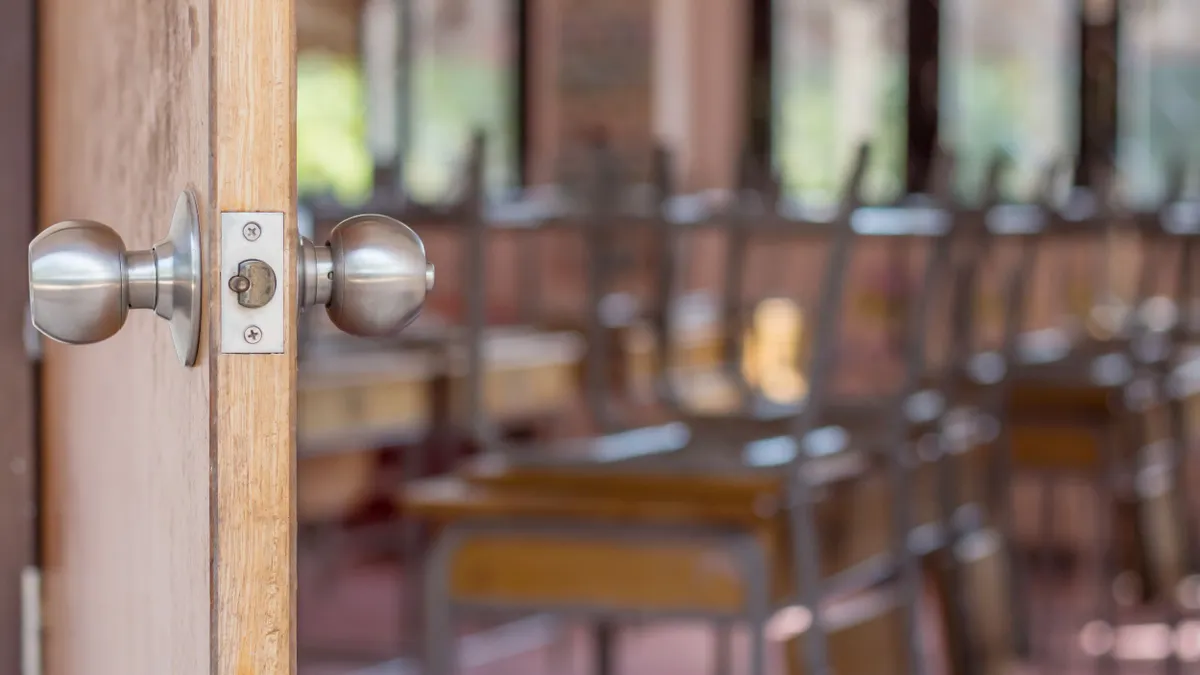Dive Brief:
- California state Sen. Nancy Skinner, D-Berkeley, is reintroducing legislation that would ban out-of-school suspensions for “defiant and disruptive behavior” in grades K-12. It comes after multiple previous attempts, which were vetoed by former Gov. Jerry Brown, to stretch the ban past K-3, but Skinner hopes current Gov. Gavin Newsom may be more receptive, EdSource reports.
- Between the state’s current ban on K-3 out-of-school suspensions, as well as existing data – which reveals this type of discipline disproportionately affects students of color, LGBT students, and students with disabilities – suspensions have already been greatly reduced in all grades. But African-American students still get suspended three times as often as their white peers, EdSource notes.
- Skinner's bill includes a five-year sunset for the ban in grades 9-12, so that state and local officials have a chance to evaluate how alternative discipline measures are working. It also references using $15 million of approved funds for a pilot program to examine alternative disciplinary methods, which may garner more support for the legislation.
Dive Insight:
As schools work to address what is sometimes termed the “school-to-prison” pipeline, out-of-school suspensions have come under fire, not only because they take students out of school, but also because they tend to be disproportionately given to students of color, those with disabilities and other minority groups. Responses to discipline issues are often subjective, and underlying biases or teacher frustration can often impact the way discipline is assigned in a particular situation.
However, some argue that cutting out suspensions altogether may remove a necessary discipline tool from the tool box. One pillar of this argument is that students who want to learn have the right to do so in an environment without the distraction of defiant students who raise tensions or use up class time. However, others say out-of-school suspensions remove students from the learning environment altogether, escalating students on a path of failure, leading to an increasing push for alternative methods, including in-school suspensions that allow young learners to continue learning.
There are other approaches to discipline that can be used in combination with in-school suspensions. Many schools have seen success with more positive tactics that track good behavior as well. These approaches can allow students to get attention in a positive way and incentivize them to continue to have good behavior.
School counselors are also often valuable in getting to the root of behaviors that disrupt the classroom. Counselors can often uncover issues such as family, mental health or environmental factors – or even just boredom – that may be contributing to the problem and work with students to address these barriers to good behavior. Restorative justice practices can also help students understand the consequences of their actions in a way that brings them back into the fold. While looking for alternative approaches may take time and money, in the long run, they are likely to improve the school climate for all students at the school. And resources like the Positive Behavioral Interventions and Supports and related frameworks can help schools looking to change their related policies.












